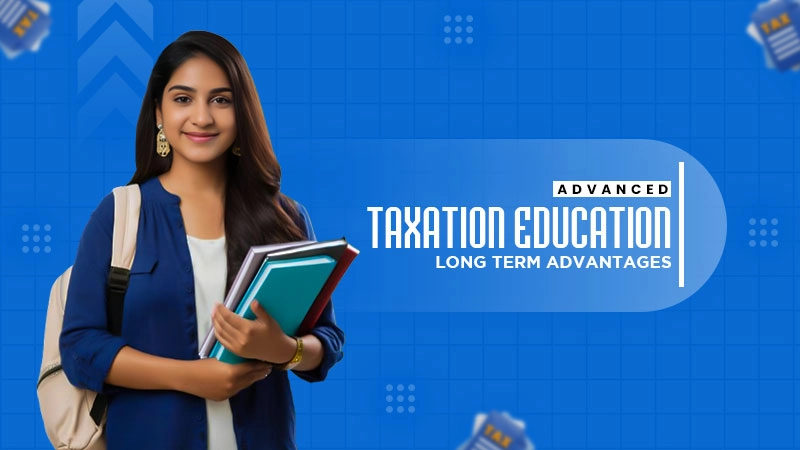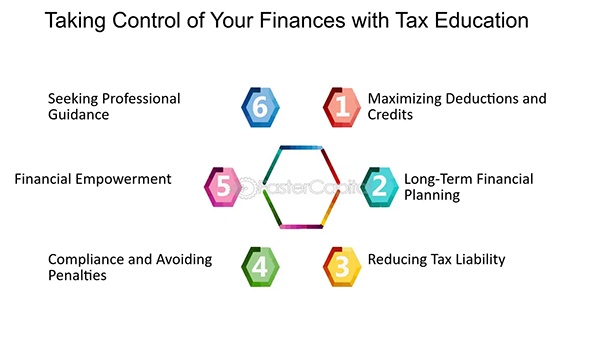
According to this U.S. Bureau of Labor Statistics site, the jobs in accounting and auditing is supposed to increase by 6 % (2021 to 2031). Tax training will offer more opportunities for individuals in the future with a strong knowledge of tax.
Tax training should not just be for specialists; it is a way forward for individuals who want to develop their careers. Tax training expands your knowledge of complex legislation, builds your confidence, and gives you more options in your career.

This article will show how having advanced tax training could give you a better future, allow you to see what you have, allow you to learn and develop, and continue to grow while working.
Key Takeaways
- Looking at some best job boosting opportunities
- Discovering a credible reputation in the market
- Uncover the engagement with expert mentors
- Building a strong alumni network
Boost Job Opportunities and Career Mobility
An advanced taxation education gives you a serious advantage when applying for jobs. Many companies prefer or even require advanced qualifications for roles like tax consultant, financial planner, or senior accountant.
It shows you’ve gone beyond basic knowledge and are ready for more complex work. This type of degree can help you qualify for positions that offer higher compensation and provide more opportunities for advancement. Employers value candidates who arrive ready to contribute immediately and hit the ground running.
Interesting Facts
Taxation can be used to promote economic growth and stability, as well as to redistribute income.
(Source)
Credible Reputation in the Market
A respected program gives your résumé a boost. When employers see that you’ve earned a recognized degree, it shows you’re serious and capable. That reputation sets you apart from other applicants and can help you secure interviews and offers more quickly.
An online MST program is a great option for those looking to advance their careers in the field. Programs like these offer a flexible schedule, meet the CPA requirements, and cover topics such as advanced tax research, ethics, and analytics, ensuring that no area is left untouched.
Meet CPA Requirements and Expand Licensure Options
If you want to sit for the CPA exam, many states require 150 total credit hours. Advanced education is one of the easiest ways to meet that requirement while gaining knowledge that’s directly useful in the field.
It saves you time and helps avoid extra credits you don’t really need. More importantly, it positions you for quick eligibility across multiple states, so you have more freedom to work where you want. That flexibility can really expand your career options right away.
Develop Real-World Skills Like Analytics and Tax Research
Advanced study is about more than theories—it’s about practicing real-world tasks you’ll need on the job. These programs help you develop skills in areas such as tax research, writing, and data analysis.
This means you’ll know how to find answers quickly, document your work properly, and use modern tools. Employers appreciate candidates who are already familiar with these essential skills, so you can jump right in and help clients or teams with confidence from day one.
Engage with Expert Mentors and Grow Your Network
A quality master’s program gives you access to faculty who are experts in taxation practice. Many instructors also work in accounting firms or as consultants, so they share real insights and advice.
These connections often last beyond graduation and can provide valuable support through mentoring, networking, or even job opportunities later. Your fellow students also become part of your network, offering shared experiences and connections that may benefit you throughout your career. That community can make a lasting difference.
Gain a Comprehensive Curriculum with Specialty Tracks
A strong taxation education provides more than just general knowledge—it allows you to explore specialties that align with your interests or career goals. You can learn about corporate taxation, estate planning, international tax rules, or ethics in tax practice.
This variety helps you develop expertise that employers value, especially in areas that are growing or complex. Having a broad base means you can transition into different industries or roles as your career progresses, providing you with more long-term flexibility and job security.
Intriguing Insights

This infographic shows how to take control of your finances with tax education.
Balance Career, Life, and Study with Smart Flexibility
A major benefit of many modern programs is that they’re designed for working professionals. Courses can be completed on your schedule, so you don’t have to quit your job or relocate. Many programs offer asynchronous lessons, meaning you can log in when it works for you—early mornings, late evenings, or weekends.
This flexibility helps you stay on track professionally and personally while advancing your qualifications. For busy professionals managing family, work, and studies, this flexibility can make all the difference.
Lower Study Costs with Scholarships and Support
Many respected programs offer financial assistance to help offset the cost of earning your degree. Scholarships, grants, and tuition discounts can help reduce your overall expenses, while some employers may even cover part of the cost if the degree relates to your job.
Online formats can also save you money, as you won’t incur travel or relocation costs. This financial support makes earning an advanced degree more affordable than many people think, and it can help you finish with less debt and more freedom.
Stronger Alumni Networks for Support
Graduating from a respected program means joining an active alumni community. This network can support you throughout your career, whether you’re seeking job leads, mentorship, or guidance on career transitions. Alumni often stay involved through events, networking sessions, and online groups.
These connections can give you a head start when you’re looking for your next opportunity. It’s like having a built-in network of professionals who have been where you are and who want to help you succeed.
Long-Term Value and Career Growth
An advanced degree in taxation holds value long after you finish the coursework. It demonstrates to employers that you possess the discipline and knowledge to undertake complex tasks and leadership roles.
This credential can lead to faster promotions, more challenging projects, and higher earning potential over your entire career. Investing in your professional development now sets you up for lasting success, giving you a competitive edge regardless of future job market changes.
An advanced taxation degree can unlock many opportunities—from meeting CPA requirements to developing real-world skills and building a strong professional network.
With flexible options designed for busy professionals and support to help manage costs, this is a smart step for anyone looking to advance. The benefits extend far beyond graduation, providing you with confidence, credibility, and opportunities for career growth for years to come.
Ans: Higher education services in India are generally taxed at 18% GST, which applies to colleges, universities, and professional courses. Exemptions: Non-Profit Institutions: Educational institutions run by the government, local bodies, or trusts are usually exempt.
Ans: In India, the purpose of taxation is to raise revenue for government expenditures, support economic development, reduce income inequalities, fund social welfare programs, and regulate economic activities to ensure sustainable growth and stability.
Ans: Taxation is the practice of levying taxes on individuals or businesses. The main goal of taxation is to raise revenue for the government to fund public services and pay for government expenses.